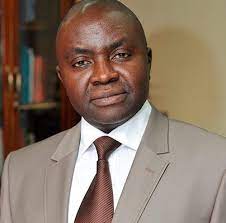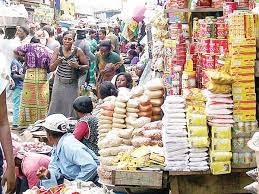…..flaws CBN’s 10-day extension of deadline
The Centre for the Promotion of Private Enterprise (CPPE), a leading private sector advocacy group in Nigeria, has expressed serious concern that the failure by the Central Bank of Nigeria (CBN) to extend the deadline for the ongoing currency swap could put N100 trillion component of the national GDP at risk.
The Centre’s Founder/CEO, Dr. Muda Yusuf, in a statement issued on Sunday, listed two critical sectors as particularly vulnerable to the unyielding stance of the apex bank on the deadline, namely– Trade and Commerce; and Agriculture.
Reacting to the announcement by the CBN Governor, Godwin Emefiele, that the deadline had been extended by 10 days to February 10, the seasoned economist pointed out that the 10 days extension “is grossly inadequate to make up for the glaring shortcomings of the apex bank in this process.”
According to him, the crippling of business transactions at the distributive trade end amid the currency swap crisis will not only undermine the trade and agricultural sectors but also have a knock-on effect on manufacturing value chain and the services sectors since whatever is produced have to be sold. The trading end of the chain has been greatly disrupted by this currency swap crisis.
Noting that the trade sector contributes about 14% of GDP valued at an estimated N35 trillion; agricultural sector contributes 25%, valued at an estimated N62 trillion, Yusuf maintained that since most of the activities in these sectors are either in the rural areas or in the informal any policy measure that would negatively disrupt these sectors should be avoided.
He stated: “For an economy that is tottering on the brink, the capacity to absorb shocks and disruptions is severely constrained. With 133 million Nigerians in poverty, inflicting additional hardship on the citizens would be unfair, insensitive and inconsiderate.
“The reality is that presently in many parts of the country, more than half of the currency in the hands of citizens are still old notes. And it is on record that the banks were still giving out old notes even few days to the CBN deadline. The citizens should not be made to pay for the incompetence, inefficiency and ineptitude of state institutions.
“Given the size of the Nigerian economy, our large population of over 200 million people, the dominance of the rural economy, the huge informal sector, the literacy level, and the over 30 million Nigerians that are unbanked, a minimum of six months window ought to have been given for the currency swap exercise”, Yusuf added.
To forestall a crippling effect of the currency swap deadline on the key sectors of the economy, the CPPE boss called for the urgent intervention of President Muhammadu Buhari to save millions of Nigerians from the anguish and pain of the current stampede of currency swap inflicted by an unrealistic timeline and glaring capacity gaps in the management of the process.
In addition, it maintained that the argument by the monetary authorities that currency swap would enhance monetary policy effectiveness and curb inflation had no strong basis in economic theory.
While agreeing that money supply is a more critical variable in the inflation equation, the CPPE chief noted total money supply in the Nigerian economy as at December 2022 was N52 trillion and total currency was N2.6 trillion, thus, cash as percentage of money supply was only 5% and the implication of this is that 95% of money is still within the banking system.
Supporting its position on the currency swap policy with evidence-based micro and macroeconomic indices of the economy, Yusuf lamented that what the CBN was doing now “is committing huge resources to fixing what is not broken”
He, therefore, reiterated the Centre’s call for an extension by a minimum of six months to ensure a seamless currency swap exercise.




